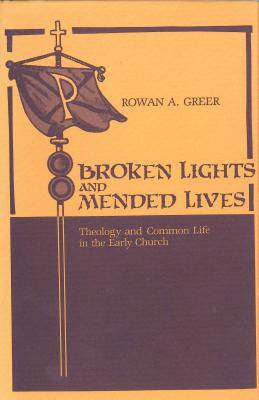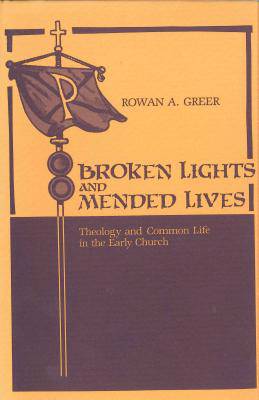
- Retrait gratuit dans votre magasin Club
- 7.000.000 titres dans notre catalogue
- Payer en toute sécurité
- Toujours un magasin près de chez vous
- Retrait gratuit dans votre magasin Club
- 7.000.0000 titres dans notre catalogue
- Payer en toute sécurité
- Toujours un magasin près de chez vous
Broken Lights and Mended Lives
Theology and Common Life in the Early Church
William CaferroDescription
A discussion by a broadly respected authority of the complicated relationship between theology and ordinary life in the early church. The first section of the book scrutinizes theology with a view to understanding its bearing upon Christian understandings of life (the theological "stories" of Irenaeus, Gregory of Nyssa, and Augustine). The second section examines aspects of ordinary life and explores how Christians related them to religious ideas (the family, hospitality, citizenship, monasticism, and attitudes toward the collapse of the Roman Empire in the West).
This very learned piece of work, which reflects lengthy study of original texts as well as of the current and important secondary literature, is distinctive because it does not conform to the present reigning ideology: The author writes as a convinced Christian thinker. He believes that there is no such thing as a purely detached observer and that the best way of being critical and fair is to make no secret of one's presuppositions, but to face them so as to be able to discount them when necessary. This quality makes the work interesting and suggestive. The book is of importance to scholars and theologians and to all concerned with the early church.
Spécifications
Parties prenantes
- Auteur(s) :
- Editeur:
Contenu
- Nombre de pages :
- 256
- Langue:
- Anglais
Caractéristiques
- EAN:
- 9780271030159
- Date de parution :
- 15-09-91
- Format:
- Livre broché
- Format numérique:
- Trade paperback (VS)
- Dimensions :
- 152 mm x 226 mm
- Poids :
- 340 g

Les avis
Nous publions uniquement les avis qui respectent les conditions requises. Consultez nos conditions pour les avis.






